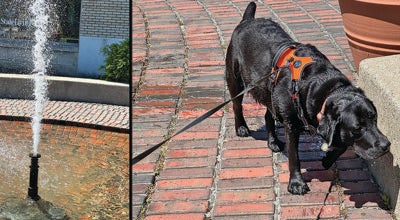Arctic blast wreaks havoc on water lines
Published 10:50 am Wednesday, January 8, 2014
Subzero temperatures can wreak havoc on water lines even with proper preparation. According to City of Ironton Water Works Superintendent Ryan Watts, the real danger is posed during the thawing process.
“There have been several water pipes burst throughout the city so far,” Watts said as he arrived at the scene of a leak on Wyanoke Street between Eighth and Ninth streets. “It’s going to get worse as it warms up. Most breaks don’t happen when the pipes are frozen. They happen when they start to thaw.”
Watts said several city employees were doing nothing more on Tuesday than driving around trying to thaw out residents’ water meters after continual calls from people who didn’t have water.
“We have water lines breaking,” Rich Blankenship, Ironton mayor, said. “We have utility locaters out on the streets. Most line breaks that have been reported are from citizens and a few have burst inside their house.”
Blankenship said most people may be unaware of a water shut-off valve in their house, but also said some houses may not have shut-off valves.
“It’s so cold right now even leaving water dripping from a faucet or turning off the valve inside your home might not prevent pipes from freezing,” Blankenship said. “I can’t remember it being this cold before.”
A service line leak on Fourth Street near the Briggs-Lawrence County Library thwarted traffic flow and leaked water covered the street and froze, leaving one car stranded on a sheet of ice. That leak, according to Watts, was not temperature related.
City of Ironton Street Department Superintendent Mike Pemberton said temperatures near minus 30 caused the impellers that pull water into the pump stations to freeze on two of the city’s four stations.
“Cold air blowing off the river caused the water coming up the discharge pipes to freeze,” Pemberton said. “We are getting on top of that situation pretty quickly. We have two out and two still working.”
Pemberton said the last cold snap similar to the current one was in 1994.




